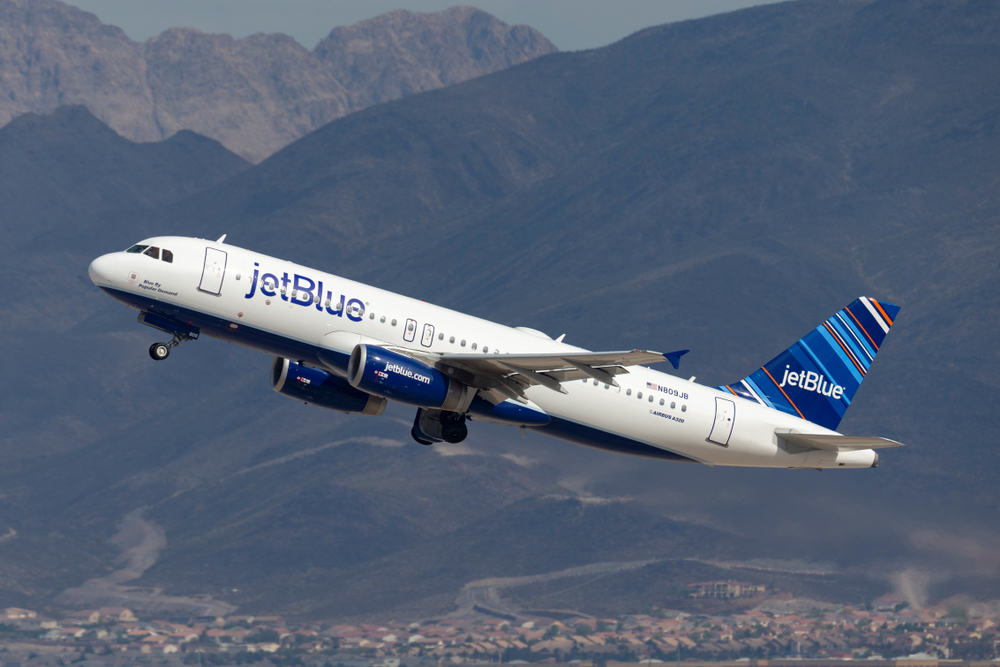
Beginning this year, JetBlue has announced that it will offset the carbon dioxide (CO2) emissions from all of its domestic flights — figures that annually amount to between 15 and 17 billion pounds.
This marks a first not just for JetBlue, but for the entire U.S. aviation industry. When the effort begins in earnest in July, JetBlue will become the first major U.S. airline to commit to combating global warming in such a way. Coupled with plans to begin flying with sustainable aviation fuel on flights from San Francisco International Airport, the plans firmly showcase a new long-term strategy from the company that it says will make for a more sustainable business.
“Air travel connects people and cultures, and supports a global economy, yet we must act to limit this critical industry’s contributions to climate change,” JetBlue CEO Robin Hayes said. “We reduce where we can and offset where we can’t. By offsetting all of our domestic flying, we’re preparing our business for the lower-carbon economy that aviation – and all sectors – must plan for.”
The efforts could amount to the removal of more than 1.5 million passenger vehicles from the road each year, JetBlue concluded. For each ton of emissions JetBlue offsets, it will also receive a tradeable carbon credit.
As to the sustainable fuel swap, the fuel offers lower emissions and will be purchased from renewable diesel and jet fuel producer Neste beginning this year. Neste’s fuel is produced from waste and residue raw materials and offers an 80 percent smaller carbon footprint than fossil jet fuel.
“The airline industry is one of the few industries that has collectively committed to an international emissions reduction goal,” said Hayes. “Air travel brings so much good to the world and JetBlue has always been about making our essential industry better. Carbon offsetting is a bridge to, not a silver bullet for, a lower carbon future. Reducing and mitigating our greenhouse gas emissions is a fundamental aspect of our business plan and our mission to inspire humanity.”